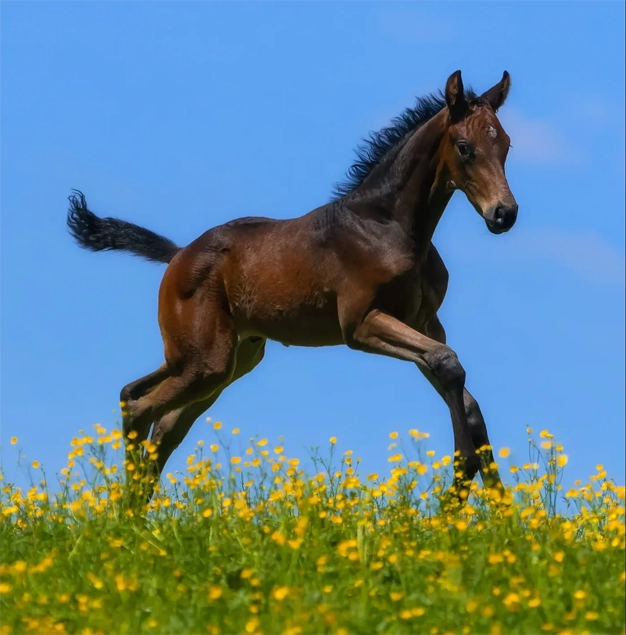At Ovoclone, science and technology come together to make horse cloning possible, allowing you to genetically replicate your favorite equine. This innovative service offers breeders and owners the opportunity to preserve and extend the genetics of elite horses.
Horse cloning is a technique of asexual assisted reproduction that allows the creation of a foal genetically identical (99.99%) to the original horse.
At Ovoclone, no genes are modified: the donor animal’s nuclear DNA is replicated. The cloned foal shares the same genetic basis and physical predisposition, although its performance and temperament will also depend on the environment, handling, and training it receives.
At Ovoclone, horse cloning is a strategic tool for breeders and elite horse owners:
We preserve and replicate the DNA of horses with proven competitive abilities, ensuring the continuity of their sporting qualities.
We offer a viable alternative to recover horses that have died suddenly, have been castrated, or have lost their reproductive capacity.
Thanks to cloning, it is possible to have a new stallion genetically identical to a horse that has already been castrated.
We make it possible to obtain several specimens with the same genetic profile, multiplying the availability of high-level breeding stallions.
We reduce the uncertainty of traditional breeding by ensuring previously demonstrated sporting, reproductive, and health traits.

At Ovoclone, equine cloning is a highly specialised procedure that requires the collaboration of veterinarians and embryologists, always under animal welfare and quality protocols.
A small skin biopsy (2–4 mm) is taken, usually from the neck area, under sterile conditions. This sample contains the donor horse’s DNA and serves as the basis to initiate the entire process.
In the laboratory, the tissue is processed to multiply the cells (fibroblasts), which carry the animal’s complete genetic information. Once the required quantity is obtained, these cells are preserved in liquid nitrogen at –196 °C, maintaining their viability indefinitely in Ovoclone’s genetic bank.
Oocytes from a donor mare are selected and their nucleus is removed (enucleation). The nucleus of the somatic cells from the horse to be cloned is inserted into these enucleated oocytes. Through an electrical stimulus, the reconstructed oocyte is activated, initiating its embryonic development.
The activated oocyte begins to divide and form an embryo. Once it reaches the appropriate stage, the cloned embryo is transferred into the uterus of a recipient mare, which will carry the pregnancy naturally.
The cloned foal is born after a normal gestation period. At Ovoclone, thorough veterinary checks are carried out at every stage to ensure the health and welfare of both the foal and the recipient mare.
Genetically yes, but its development will also depend on training, handling, and environment.
Yes. A viable skin biopsy is enough to obtain the necessary DNA.
Refrigerated skin is used. In deceased animals, the sample must be taken within the first 24–72 hours and kept refrigerated, never frozen.
The success rate depends on the quality of the sample, the health of the recipient mare, and the laboratory’s experience. This is why strict animal welfare and control protocols are applied.
In most international disciplines (show jumping, polo, eventing), clones can compete and reproduce in compliance with current regulations.
Between 1 and 3 years, depending on cell culture times, cryopreservation, recipient mare preparation, and gestation.
Cells can remain viable for years in the genetic bank, allowing you to preserve that “biological insurance” to decide later on.
At Ovoclone, we bring together science and biotechnology to preserve the future of elite equine genetics.
Request information today and discover how we can help you clone your horse and keep its sporting and reproductive legacy alive.

